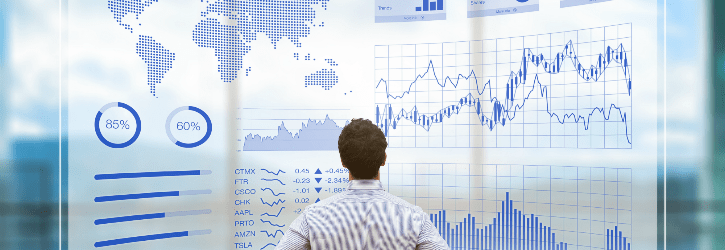The ethical handling of data has always been the aim of data protection watchdogs and officials. Companies and organisations have the responsibility to handle data securely under the Data Protection Act (DPA), but there is a term known as ‘ethically handling data‘ that’s growing in popularity.
The difference with ethical handling of data and normal handling of data goes beyond privacy, some believe. It’s about whether customers are aware of how their data will be used and how it will be protected from third parties above and beyond what anyone would generally assume.
We’re generating and providing countless volumes of data to all industries; private, public, healthcare, education, commerce and entertainment etc. Following what the chief privacy officer at Adobe Systems, Rasmussen, says in terms of data privacy:
“…say what you do, do what you say, and don’t surprise the user.”
There is arguably a burden on companies to abide by this. But, it’s not always easy to achieve where transparency is complicated. Rasmussen gives an example of drafting a privacy policy. Additions may be made to the policy but it may become unworkable to keep updating the privacy policy.
So, the general rule to remain as transparent as possible using the principle of “no surprises” seems like a sensible one. This is where the data subject (customers) shouldn’t be surprised by where their data is, or how it’s being used.
The data should be used for its stated purpose, but we know it isn’t always clear as to how far that “purpose” can go. In a continually growing and changing digital era, companies and organisations must do their best to handle their customers’ data ethically and with integrity, no matter how difficult or inconvenient it may be for them.
Gaining a competitive edge?
For those companies and organisations who are upholding their moral responsibilities, they could gain a competitive edge over others in the industry. It’s known that many people really appreciate transparency and honesty, and front-loading your organisation’s ethical data principles could be the difference between winning their custom or losing it.
In a survey reported in the Deloitte University Press, 51% of customers said they’d be forgiving of a company that experienced a breach as long as they quickly addressed the issue.
By being open and transparent about how the breach or unauthorised data handling occurred, companies can perhaps retain the trust of their customers. For companies that aren’t transparent or taking moral responsibility to alert their customers, damaging knock-on effects may occur.
So, the moral of the story may be to “keep your customers in the know and you won’t have to worry about their custom.”
Basic framework
Some companies and organisations may find it useful to follow a basic framework for ethical data handling, such as:
- A clear conceptual model of ethical and principles
- Building ethical data-handling practice on existing regulatory compliance
- Ethics in the design process
- Ethics and operational process
This could allow them to take up the moral responsibility and gain a competitive edge over others who don’t follow an ethical data handling framework, or have such a thing in place.
In the event of a breach, the ICO may not impose such a huge fine on a company who is seen to be doing something to protect their customers’ data. This could allow for a competitive advantage for companies who implement such a framework.
Companies and organisations have a responsibility to secure their customers’ personal details. Over time, there has been a growth of moral responsibility to ethically handle personal data. This means that companies must do more to ensure the security of the data, in doing so, they must be transparent and honest.
Start Your Claim
You can call our claims team free from a landline or mobile on 0800 634 7575 or click on the link below to create a call back with one of our expert Data Claims team.Information on how we handle your data is available in our Privacy Policy.The content of this post/page was considered accurate at the time of the original posting and/or at the time of any posted revision. The content of this page may, therefore, be out of date. The information contained within this page does not constitute legal advice. Any reliance you place on the information contained within this page is done so at your own risk.
